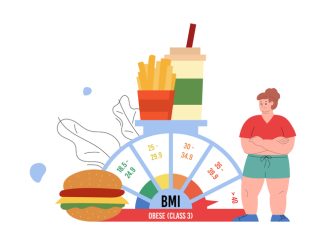
Responding to a new report published by the local government association, Professor Martin Marshall, chair of the Royal College of GPs, said: “GPs know that obesity can have serious consequences for our patients’ health – we also know there is not always a quick fix for overweight patients to address their weight. There may be multiple physical and psychological factors to take into account, as well as lifestyle.
“While BMI is one measurement that GPs and other healthcare professionals use to calculate whether a person is in a healthy weight range, it isn’t the only thing that helps us determine whether someone is healthy or not. GPs are highly trained to have open, honest and sensitive conversations with patients about all aspects of their health, including their weight. These can be hard conversations to have, for both GP and patient, but the trusting relationships GPs have with their patients, often built over time, can make them easier. The college has worked to develop resources to support GPs and other members of our teams to have these conversations with their patients, and give advice about how to change their lifestyle, if appropriate.
“There are many health interventions that patients can take themselves to help maintain a healthy weight – taking exercise, eating a balanced diet and only drinking alcohol in moderation, being some of them. These can often be free and easily accessible for patients – but for those who really struggle with their weight, GPs need to be able to refer patients to appropriate support or schemes that can help patients make changes that will have long-term benefits to their health
“More widely, we need to take a society-wide approach to tackling increasing levels of obesity and its root causes, which include poverty and deprivation – it mustn’t be seen as an issue that is the preserve of the health sector alone.”



Be the first to comment